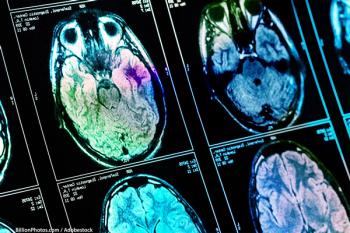
- ONCOLOGY Vol 15 No 10
- Volume 15
- Issue 10
Thalidomide Plus Radiation Shows Promise in the Treatment of Certain Brain Tumors
According to a study conducted by the Radiation Therapy Oncology Group, thalidomide (Thalomid) in combination with radiation therapy shows promise in treating malignant brain tumors. Study findings were presented at the annual meeting of
According to a study conducted by theRadiation Therapy Oncology Group, thalidomide (Thalomid) in combination withradiation therapy shows promise in treating malignant brain tumors. Studyfindings were presented at the annual meeting of the American Society ofClinical Oncology (ASCO).
Thalidomide is known to have antiangiogenic properties, saidlead author Alfred Yung, MD, acting chairman of the department of neuro-oncologyat M. D. Anderson Cancer Center. In the study, 89 patients with glioblastomaswere given thalidomide in combination with radiation therapy and compared toseveral hundred patients treated with standard chemotherapy (carmustine [BiCNU])and radiation.
The survival difference between the two groups was notsignificant, and there were no major side effects with thalidomide. The mostnotable side effects were numbness in the hands and feet and fatigue (which isusually manageable).
"We think there is good potential for use of this drug, perhaps incombination with other antiangiogenic or cytotoxic agents, in the future,"said Dr. Yung. "These malignant brain tumors are very vascular and verydependent on a good blood supply. Clearly, thalidomide can help cut off thissupply."
Articles in this issue
over 24 years ago
Advances in Cancer Research, Volume 79over 24 years ago
Physician Fee Cuts Also a Possibilityover 24 years ago
Testing Cancer Drugs in Childrenover 24 years ago
Chemotherapy for Resectable and Advanced Pancreatic CancerNewsletter
Stay up to date on recent advances in the multidisciplinary approach to cancer.






































